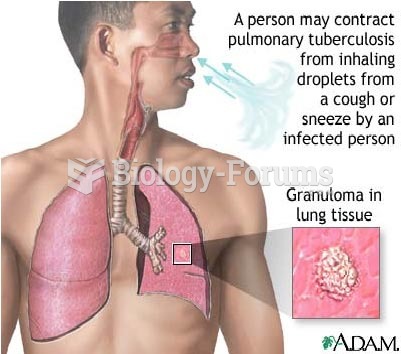This topic contains a solution. Click here to go to the answer
|
|
|
Did you know?
Only 12 hours after an egg cell is fertilized by a sperm cell, the egg cell starts to divide. As it continues to divide, it moves along the fallopian tube toward the uterus at about 1 inch per day.
Did you know?
There are more nerve cells in one human brain than there are stars in the Milky Way.
Did you know?
By definition, when a medication is administered intravenously, its bioavailability is 100%.
Did you know?
The average office desk has 400 times more bacteria on it than a toilet.
Did you know?
The people with the highest levels of LDL are Mexican American males and non-Hispanic black females.







